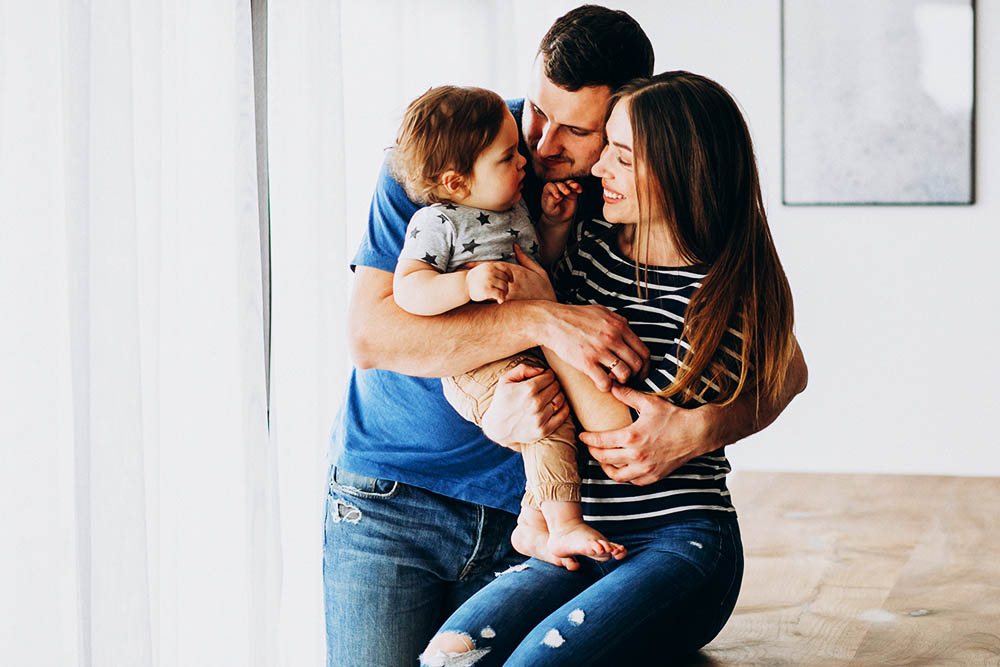The Evolution of Parenting
Parenting has changed significantly throughout the years. Gone are the days of using physical punishment and authoritarian styles of parenting. Today, parents are looking for more positive and effective ways to discipline their children. Positive discipline is a parenting approach that focuses on encouraging positive behavior rather than punishing negative behavior. This style of parenting creates a happy and healthy home environment, which is good for the well-being of both parents and children.
What is Positive Discipline?
Positive discipline is a parenting approach that focuses on respectful communication and cooperation between parents and children. It is based on mutual respect and understanding, rather than punishment and control. In positive discipline, the goal is to teach children to be responsible, respectful, and resourceful individuals. The key is to work together with children to find solutions and create a positive and happy family environment.
Why Positive Discipline is Important?
Positive discipline is important for several reasons. First, it is a more effective way to discipline children than punishment. Punishment can create fear, resentment, and defiance, which can lead to more negative behavior. Positive discipline, on the other hand, creates a sense of respect, cooperation, and trust between parents and children, which leads to more positive behavior.
Second, positive discipline promotes self-discipline in children. When children are encouraged to take responsibility for their actions and are given the opportunity to make their own decisions, they learn self-discipline. This leads to higher self-esteem, better decision-making skills, and increased confidence.
Finally, positive discipline creates a happier and more motivated family environment. When children feel respected and valued, they are more likely to be cooperative and helpful. This, in turn, creates a positive feedback loop, where children are motivated to continue to behave well because of the positive reinforcement they receive.
The Principles of Positive Discipline
Positive discipline is based on several key principles that are important to understand. These include:
1. Respect: Positive discipline is based on mutual respect between parents and children. It is important to listen to children and treat them with respect, even when disagreeing with them.
2. Cooperation: Positive discipline encourages cooperation between parents and children. It is important to work together to find solutions and create a happy and healthy family environment.
3. Positive reinforcement: Positive discipline focuses on positive reinforcement, rather than punishment. It is important to recognize and reward positive behavior.
4. Understanding: Positive discipline is based on understanding the reasons behind children’s behavior. It is important to be empathetic and try to understand the underlying causes of negative behavior.
The Benefits of Positive Discipline
Positive discipline has many benefits for both parents and children. These include:
1. Improved behavior: Positive discipline can improve children’s behavior by teaching them self-discipline and encouraging good behavior.
2. Stronger relationships: Positive discipline creates a stronger bond between parents and children. It creates a sense of mutual respect and understanding.
3. Better communication: Positive discipline encourages open and honest communication between parents and children. This helps to avoid misunderstandings and reduces conflict.
4. Increased self-esteem: Positive reinforcement can improve children’s self-esteem and help them develop a positive self-image.
How to Implement Positive Discipline
Implementing positive discipline can be challenging, but it is an essential step towards creating a happy and healthy home environment. Here are some tips to help you get started:
1. Be consistent: Consistency is key in positive discipline. Children need to understand what is expected of them and what the consequences are for not meeting those expectations.
2. Set realistic expectations: Be realistic in your expectations of your child’s behavior. Remember that children are not perfect and will make mistakes.
3. Use positive reinforcement: Praise and rewards are powerful tools in positive discipline. Whenever your child exhibits positive behavior, be sure to recognize and reward it.
4. Use natural consequences: Natural consequences are an effective way to teach children about the consequences of their actions. For example, if your child breaks a toy, they will not be able to play with it anymore.
Conclusion
Positive discipline is an effective and respectful way to discipline children. It creates a happier and healthier home environment, which is good for both parents and children. By following the principles of positive discipline and implementing a few key tips, parents can transform their parenting style and say goodbye to punishment once and for all.
